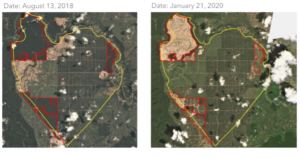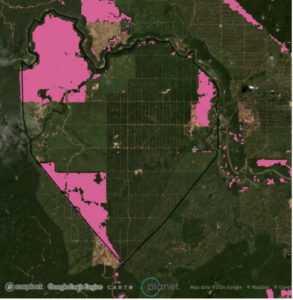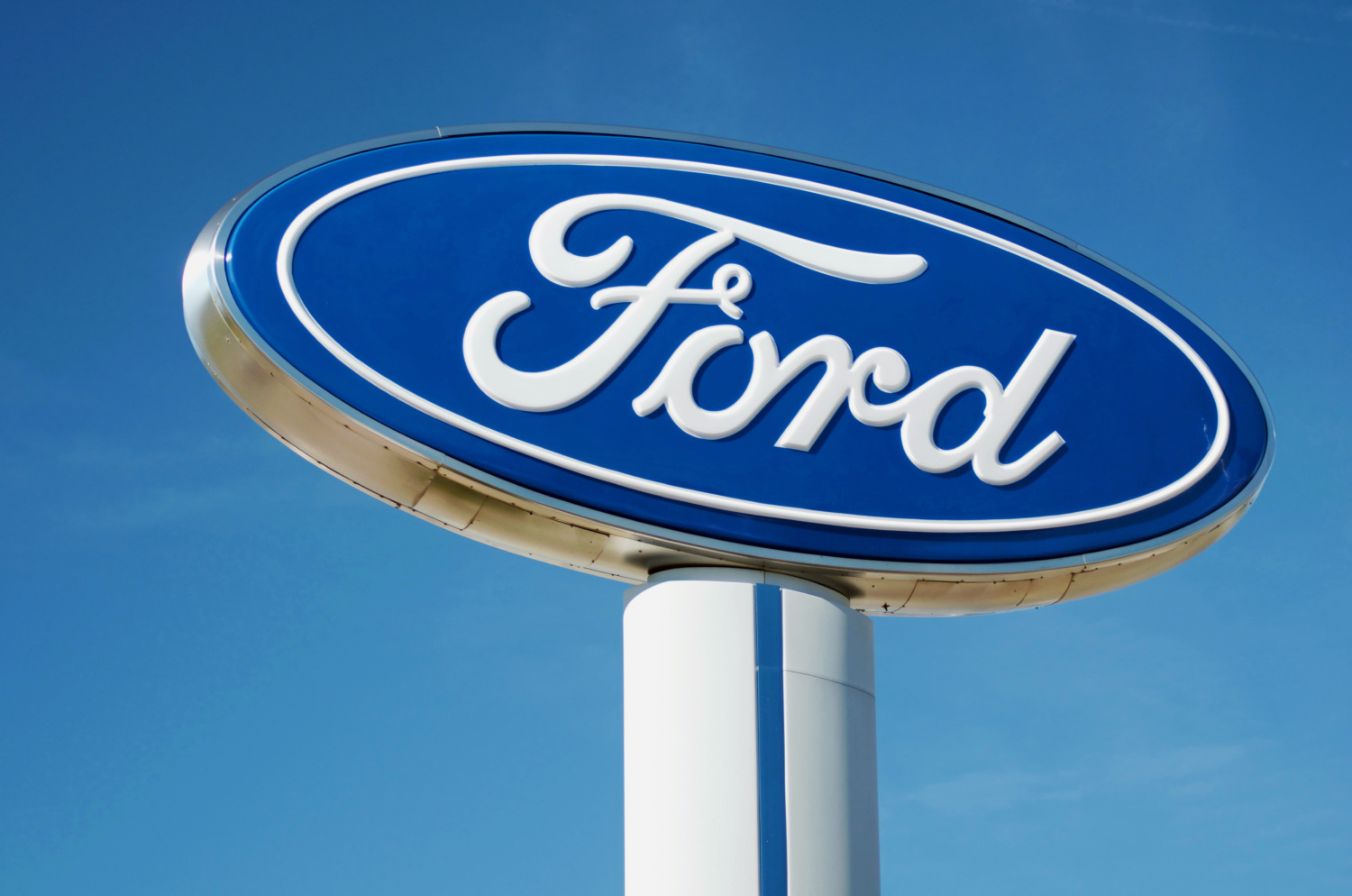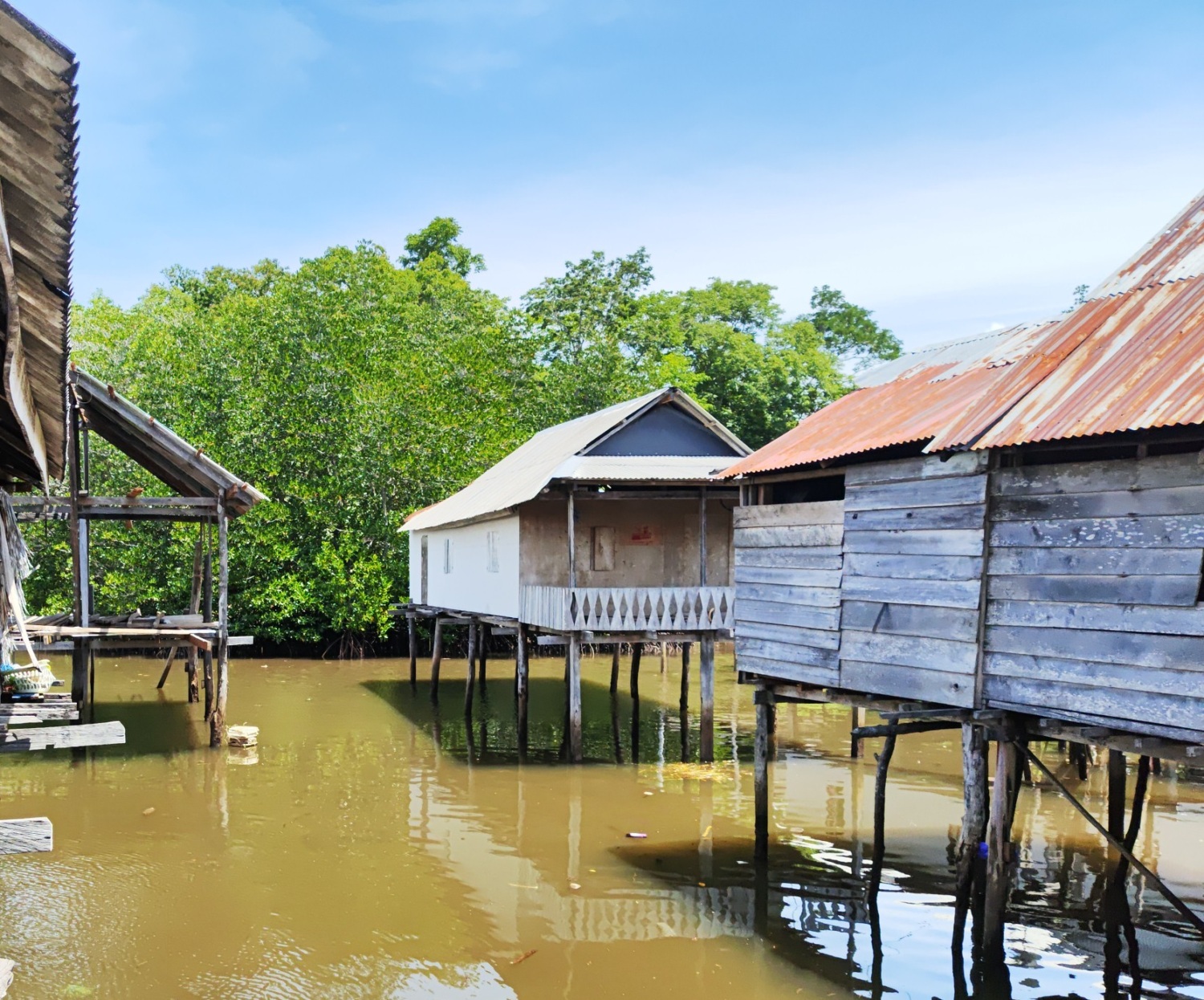
Widya Corporation held accountable for failed forest assessment process
Success Story: Widya Corporation held accountable for failed High Carbon Stock (HCS) forest assessment process
In the PT Mulia Inti Persaka concession owned by the Widya Corporation, Mighty Earth found 1,304 ha of deforestation between August 2018 and January 2020 (satellite images below).

Mighty Earth initially published this case in Rapid Response Report 6, showing 30 ha of deforestation by PT Mulia Inti Perkasa in July of 2018, traders did not immediately act. As deforestation in PT Mulia Inti Perkasa continued, Mighty Earth published twelve follow-up reports on the case (listed in the table below).

As part of their No Deforestation, No Peatland, and No Exploitation (NDPE) policy, Widya (and much of the palm oil industry) utilizes the High Carbon Stock Approach (HCSA) whichh allows trplantation companies to conduct an HCS assessment where an independent assessor classifies landcover and determines which areas contain variable areas of natural forest to be protected. The HCSA underpins the private sector NDPE policies that have been instrumental to the dramatic declines in deforestation connected to palm oil in Southeast Asia.
Upon initial assessment of the PT Mulia Inti Persada concession, the 2018 HCS assessmentconsidered the area as “scrub,” meaning that it wouldn’t qualify as deforestation under Widya’s NDPE policy. Mighty Earth challenged this, as our team believed that the deforestation the areas cleared (in pink in the image below) was HCS forest.

After years of engaging with one progressive trader and the HCSA Secretariat, the HCS assessment was put through a peer review process, after which it was determined that the land cleared was in fact HCS forest.
For the integrity of the HCSA system, the independent assessor must properly identify HCS forest areas. In this case, Mighty Earth uncovered a shortcoming – the original HCS assessment failed to identify HCS forest correctly, and so the Widya Corporation cleared forest that should have been protected. Mighty Earth had to challenge it to prove that the clearing was of forest. With this proof of deforestation, Widya has now agreed to compensate by protecting 5,640 ha of forest in North Kalimantan near their concession that wouldn’t be conserved otherwise. Grievance mechanisms and the HCSA system are vital to helping companies identify forest land (where they should avoid clearing), allowing Mighty Earth and others to ensure that companies are held accountable for deforestation and compensate accordingly.


